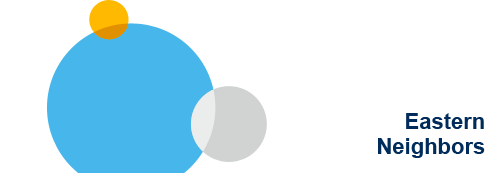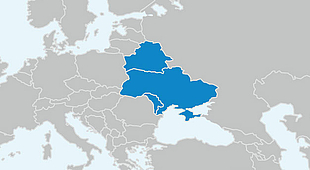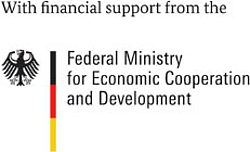On 4th of October the Continental Exchange project organised its first event in cooperation with the European Association for the Education of Adults (EAEA). There were about 50 participants from six countries: Armenia, Georgia, Bosnia and Herzegovina, Kosovo, Ukraine and Moldova.
This online workshop provided an opportunity for local civil society organisations (CSOs) and public agencies to receive a general overview of the CONFINTEA processes, discuss approaches for advocacy and share ideas on implementing the Marrakesh Framework for Action (MFA) recommendations.
Country survey results online CONFINTEA VII
To prepare for the workshop, a survey was conducted within the region. It outlined the level of participation and involvement in the CONFINTEA VII preparation process by both CSOs and state authorities. At the same time, relevant CONFINTEA VII topics and MFA recommendations for each country were identified.
Strengthening ALE
The words of greeting at the beginning of the workshop and the moderation of the first session were delivered by Ravshan Baratov, the Head of the Continental Exchange project.
The first input presentation by Prof. Dr. Heribert Hinzen, an UIL Senior fellow and the Vice President of PIMA, mirrored the contributions of civil society to previous major events: the Belém Framework for Action (BFA) from 2009, or the Education Agenda of the Sustainable Development Goals (SDG), and the Recommendation on Adult Learning and Education (RALE). Heribert Hinzen emphasised the importance of community learning centres (CLC), which according to the MFA, are highly relevant for strengthening ALE at the local level.
Dr. Katarina Popovic, the Secretary General of the International Council for Adult Education (ICAE) provided participants with a review of the CONFINTEA VII and the MFA She pointed out the important aspects of the CONFINTEA VII preparation process and the key findings of UNESCO’s Fifth Global Report on Adult Learning and Education (GRALE 5): “adult education still does not reach those who need it most.” The main messages of the MFA were conveyed to the workshop participants, including the conviction that ALE can secure peace, strengthen democracy, and promote peaceful living together. The latter is more important than ever today.
A mosaic of different approaches
The second session of the workshop started with a virtual panel on advocating and implementing CONFINTEA’s recommendations and acknowledgements onto national policies, moderated by Dr. Katarina Popovic. Both approaches of state authorities and civil society organisations were discussed. Katarina designed the panel as a mosaic of different approaches to MFA through the lens of speakers from three different countries.
Lauri Tuomi, Vice-President of EAEA, CEO of the Finnish Lifelong Learning Foundation (KVS) gave an input about the experience before, during and after the MFA from the perspective of Finland. He discussed Finland's goals for ALE, including the implementation of the MFA in the reform of the Finnish education system.
Anna Delort, European Projects Coordinator of ACEFIR, presented the challenges and the new perspectives of ALE policies in Spain. Anna mentioned the government's efforts in schools, but she also pointed out the need to sharpen the awareness of ALE being a separate field of action. Sharing responsibilities between governments and CSOs was one of the most important aspects emphasised by this representative of the EAEA member organisations.
Larysa Lukianova, Head of the Board of the Ukrainian Adult Education Association, featured the steps taken by Ukraine to implement the MFA at different levels. She also mentioned the importance of research on ALE in Ukraine. The biggest challenge for Ukraine currently is the war. Under these conditions, training offers in more than 10 ALE centres in Ukraine were adjusted to current needs and some ALE centres were established for Ukrainian citizens abroad. Rehabilitation remains an important task in the reconstruction of Ukraine.
Virtual group work
In the closing part of the event one online padlet with four questions was proposed for discussion to the virtual groups of the workshop. The results illustrate the priorities of the countries, and these will be considered when planning the following activities of the Continental Exchange project.
Priority for the future
In order to translate the vision captured in the MFA in a more efficient and sustainable way, identifying priorities at the national level is necessary. Thus, let us work together in shaping the future actions and find the way to adapt the MFA for the region countries’ different and yet similar contexts.











